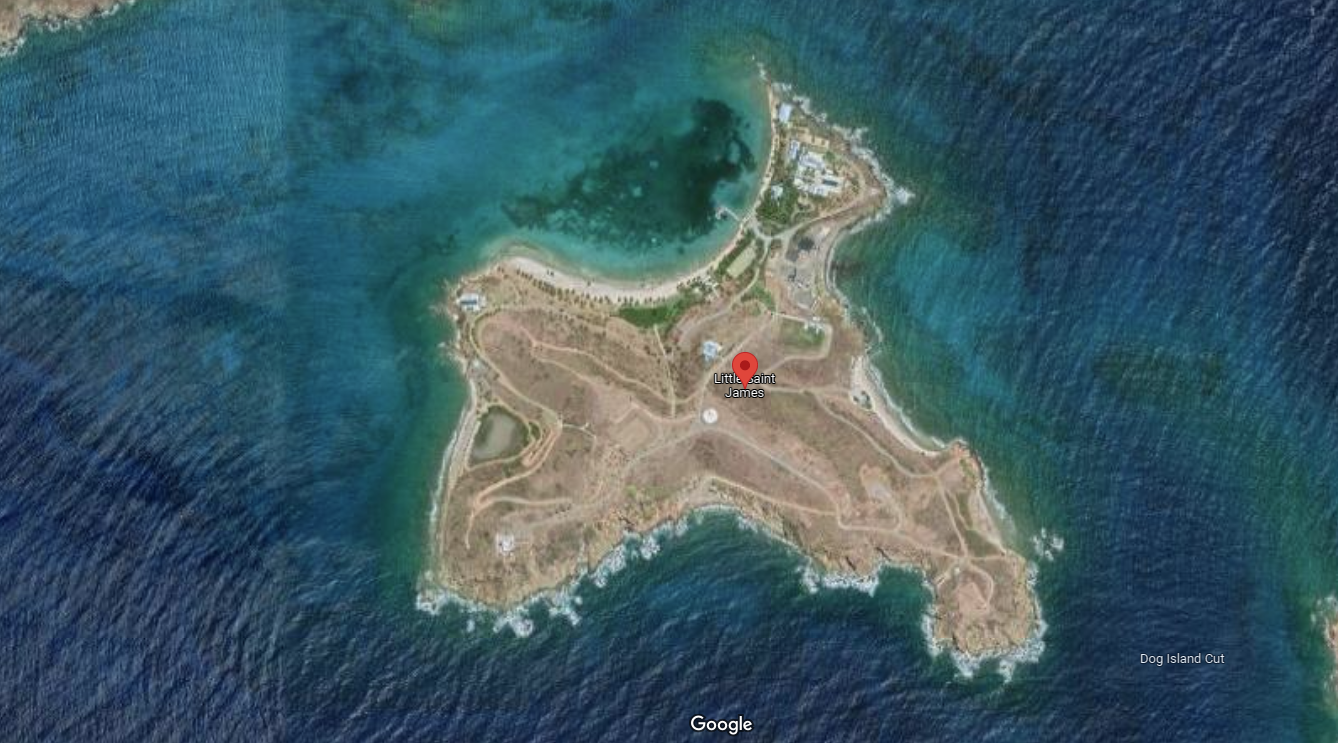Google Maps removes offensive prank reviews from Jeffrey Epstein’s private island
Exclusive: The search giant deleted fake locations and reviews mocking Epstein’s victims after an inquiry from The Independent – but took further prompting to nix the Caribbean island’s 4.7 star rating

Your support helps us to tell the story
From reproductive rights to climate change to Big Tech, The Independent is on the ground when the story is developing. Whether it's investigating the financials of Elon Musk's pro-Trump PAC or producing our latest documentary, 'The A Word', which shines a light on the American women fighting for reproductive rights, we know how important it is to parse out the facts from the messaging.
At such a critical moment in US history, we need reporters on the ground. Your donation allows us to keep sending journalists to speak to both sides of the story.
The Independent is trusted by Americans across the entire political spectrum. And unlike many other quality news outlets, we choose not to lock Americans out of our reporting and analysis with paywalls. We believe quality journalism should be available to everyone, paid for by those who can afford it.
Your support makes all the difference.Google has removed offensive prank listings and reviews from its map of Jeffrey Epstein’s private island after The Independent raised the issue.
Little St James, the 75-acre retreat in the US Virgin Islands where Epstein and his allies allegedly abused numerous teenage girls, previously had two user-submitted locations on Google Maps called "Rape Center" and "Boy Thrussy Chaimber", using a sexual slang term for throat.
Reviews for the so-called Rape Center included a four star rating claiming "great service and entertainment. Can recommend!" and a one star rating that said "name’s a bit sketchy, explains the place well".
On Thursday Google removed those reviews and then both location listings after The Independent drew the company’s attention to them.
However, it took a second inquiry on Saturday to nix reviews attached to Little St James itself, which were submitted between three and four years ago and gave it an average rating of 4.7 stars out of five.
A spokeswoman for Google said: “As soon as we were made aware of these listings, our teams took immediate action to investigate, remove policy-violating content, and put protections in place to prevent further abuse.
"We have clear policies that prohibit offensive and fake contributed content, and our automated systems and trained operators work around clock to monitor Maps for suspicious behaviour.
"We encourage our users to report misleading places and inappropriate content, which helps us improve our automated detection systems and keep the information on Maps authentic and reliable.”

Little St James has been the target of intense interest and feverish speculation since Epstein’s death by apparent suicide in 2019. The billionaire bought it in $8m (£6m) through a shell company in 1998, turning it into an idyllic island retreat that he often referred to as "Little St Jeff".
Locals, however, called it "paedophile island", and prosecutors say it was the heart of an international abuse network that flew girls between 12 and 17 years old around the world in "sexual servitude" for the benefit of rich clients.
Court documents filed by the attorney general of the US Virgin Islands allege that Epstein used the island’s seclusion to resist inspection by the authorities and prevent victims from escaping, ferrying them to and from the airport on nearby St Thomas via his private helicopters.
The "Rape Center" on Google Maps was placed at the location of a strange blue and white striped temple structure whose purpose has been a subject of dark conjecture, while the "Chaimber" was placed near Epstein’s main mansion complex at the north end of the island.

Google relies on users to populate its worldwide map, with rules requiring that they be "based on real experiences and information", and forbid content that is "deliberately fake" or "unnecessary or incorrect".
Yet the search giant has long struggled to police fake content, from innocuous jokes and puerile puns to deliberate attempts at inflating businesses’ reputations or defaming their rivals. It uses artificial intelligence to scan for new submissions that might be fake, with "thousands" of human workers checking ambiguous cases.
Last year Google said it blocked or removed 55 million rule-breaking reviews, 160 million photos and 3.5 million videos, as well as disabling more than 610,000 suspicious accounts and blocking more than 3 million attempts to register fake business profiles.
In June, the UK’s Competition and Markets Authority opened an investigation into fake reviews on Google and Amazon’s services, saying it was concerned the two tech giants "have not been doing enough to protect customers and honest businesses".
This story was updated at 9pm on Saturday 13 November after Google removed a second set of reviews.
Join our commenting forum
Join thought-provoking conversations, follow other Independent readers and see their replies
Comments